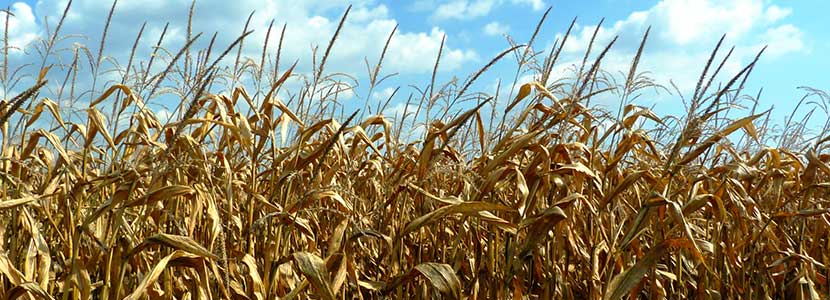Spain finds itself under an important shortage of raw materials for animal feed. Ukraine is the second largest supplier of corn to Spain, behind Brazil, with an average volume per season of 2.7 million tons, 22% of purchases of this product abroad. Also noteworthy are the imports of sunflower cake, with 233.00 tons, 68% of the total supply received by Spain. These products are grealty used in animal feed manufacturing and in the food industry. Due to Russia’s invasion of Ukraine these types of products are running out.
In addition to this shortage the current drought problem taking place within Spain must be considered. The country finds itself during a period with very scarce rains, which has taken a toll on the livestock sector. Due to these drawbacks, the livestock sector sees itself on the brink of being forced to slaughter animals beforehand.
Considering this current scenario, the Minister of Agriculture, Fisheries and Food, Luis Planas, has assured that despite the conflict between Ukraine and Russia “there is no risk” of food shortages in Spain “in the short term”. Taking into account that these countries are two of the largest cereal and oilseed producers in the world and that currently Spain only has corn stocks concentrated in the port of Tarragona for 45 days
Planas has also requested some measures such as the flexibility of the Common Agricultural Policy (CAP). In order to have a greater planting area, as well as for facilitating in an “exceptional” and “temporary” manner greater access to raw materials from countries like Argentina, Canada or the United States. Raw materials coming from these countries are currently vetoed due to the use of transgenic and phytosanitary products that are not allowed in the EU. Planas has also called for a mobilization and activation of the response mechanisms to ensure security during food crisis appealing to entities like fao and G-20.
The request to relax CAP measures has to do with the fact that currently there are 13.6 million tons of corn in the United States, 7.5 million tons of corn in Argentina and 100,000 tons of sunflower seed and 400,000 tons of sunflower cake also in Argentina which remain unsold. This has been confirmed by (Cesfac) the organization of animal feed companies.
Under such context, two days ago on March 14, 2022.- The Spanish Ministry of Agriculture, Fisheries and Food (MAPA) published a Resolution by which the specific requirements for the import of corn from Argentina and Brazil will be temporarily relaxed, facilitating the entry of raw materials for animal feed in Spain.
| In this way it will be possible to replace the paralysis of imports from Ukraine due to the war situation in which this country finds itself after the Russian invasion |
The European Commission last Friday, March 11, convened the Member States to a meeting to analyze the respective measures with the aim of relaxing certain phytosanitary requirements (imports from third countries), in the applicable Community regulations and in turn, based on the risk analysis carried out by each Member State.
The MAPA met with the Spanish Association of Foreign Trade in Cereals and Analogous Products (AECEC) last Thursday 10 and has done again yesterday, Monday, March 14, to analyze the flexibility measures that affect corn from Argentina and Brazil.
| The meetings found that maize from the United States did not present any problems for this purpose, and no exceptional measures were necessary. |
With the information provided by the AECEC and, after carrying out the corresponding risk analysis, it was concluded that 6 of the 10 plant protection products do not present any problems in the light of the current legislation. For the remaining 4, the MAPA has agreed to establish an upper limit, applying Article 18 of Regulation 396/2005 on maximum residue levels of pesticides in food and feed of plant and animal origin.
The MAPA published yesterday the Resolution, which will be applied temporarily to corn originating in Brazil and Argentina and to certain pesticide residues.
Source: MAPA
